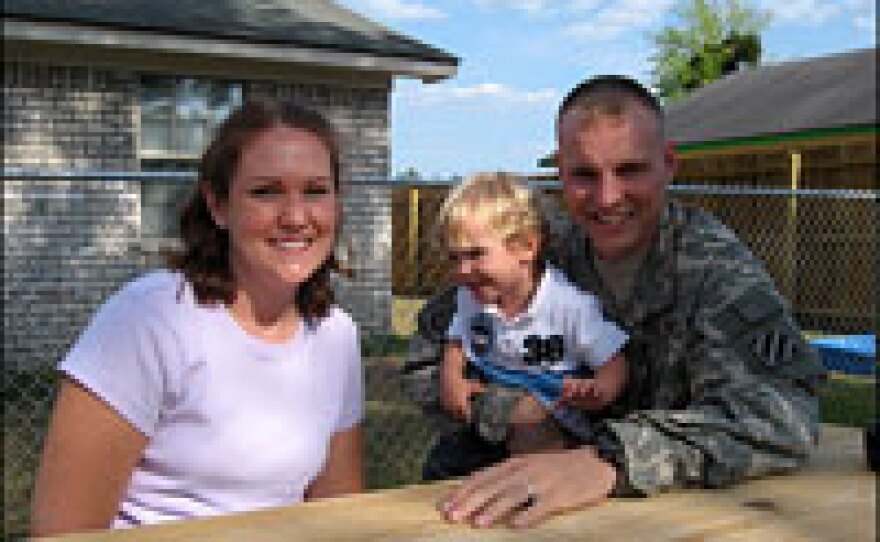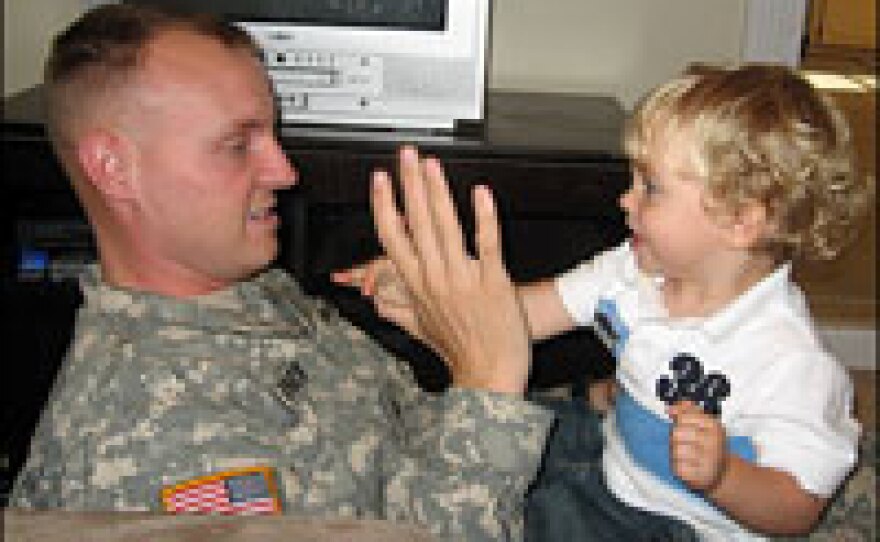


In an attempt to help troops handle family stress, the Defense Department has struck up a partnership with a nationwide program called Parents as Teachers that aids parents with young children. Now, military families at 12 installations are using the program.
Much of the information included in the program is basic, such as encouraging parents to talk to children about colors and shapes while shopping for groceries. It's the type of wisdom that grandparents would typically pass on, but most soldiers don't live near their extended families to get their advice.
Ruth DeUnger, whose husband is deploying to Iraq this month for the second time, said she and her 22-month-old son, Drew, have benefited from the program. Parent educator Felicia Lowe visits their home in Hinesville, Ga., once a month to help DeUnger and talk about how Drew is doing.
"It's taken a lot of stress off me," DeUnger says. "You know, when I was growing up, I always thought my mom was going to be the one who would sit down and show me how to do these things with my first child and teach me how to be a mom — and I have her on the phone — but it's different having Felicia come here and sit down on the floor and actually do these activities with us. It helps a lot."
Sue Stepleton, president of the Parents as Teachers national program, says services generally have not been available for the families of very young children.
"I think it's only been in the last couple of decades that we've really understood [that] what happens from good prenatal care through those first couple of years really sets the tone for the rest of a child's life," she says. "Can there be remediation if necessary? Can a child make it without that? Absolutely, but if we miss out on capitalizing on those first few years, we're really missing where the bang for the buck could be the most."
The program began in Missouri in the 1980s after educators noticed that some students were more prepared to start school than others. Officials also noted the high cost of remedial services, and they decided to fund a statewide program.
The program works by having mentors called parent educators go right to parents' homes. They observe the behavior of young children and use developmental tests to make sure kids are on the right track.
The Defense Department's partner program, called Heroes at Home, works with parents with children ages 3 and younger. It focuses on the kinds of stresses that military families face: relocation, deployment, separation and being a single parent.
Lowe, the lead parent educator at Fort Stewart in Georgia, says it's about the basics.
"Having someone there to talk to, to share — because it can be isolating, and if you have very young children at home and you're the only one there, a lot of times you do feel like you're alone — and having someone come in and kind of help you out and give you a pat on the back is nice," she says.
The last time DeUnger's husband, Staff Sgt. Andy DeUnger, deployed, Ruth lived near her parents. This time, she will stay in the home the couple bought near the post, several hours away from her family.
"I think that if I can help Drew get through it, then that will be helping myself get through it," Ruth DeUnger says.
One activity that Heroes at Home suggests is creating a special book to help young children remember their parents. The one the DeUngers are making is thick. The album is filled with family photos, mementos and small notes that Drew can touch and see while his father is far away in Iraq.
Copyright 2022 NPR. To see more, visit https://www.npr.org. 9(MDAzMjM2NDYzMDEyMzc1Njk5NjAxNzY3OQ001))







